SPORTS BETTING OPERATOR



For more information please visit sbcevents.com or scan the QR code





For more information please visit sbcevents.com or scan the QR code

One would be forgiven for thinking, when dealing with the vexatious question of prediction markets, that we’ve gone through Lewis Carroll’s Looking Glass. We seem to be in attendance at the Mad Hatter’s tea party, especially when prediction-market hucksters are employing their customary magical thinking.
Recall that before the 2024 elections, Kalshi and its ilk argued that wagering on elections wasn’t gambling, unlike betting – their choice of example – on sports. Come the 2025 Super Bowl and the money to be made was too good for Kalshi & Co. to resist, so they jumped in with both left feet.
In mid-July Kalshi made news by marketing its soothsaying with language about “odds” and “bets.” Where have we heard those terms before? The local betting shop perhaps? “American Odds are live on web,” shrieked one Kalshi ad. Yelped another, “Bet on NBA legally!” Asked still another “What are the odds?” (Emphasis from the original.) But it’s somehow NOT gambling, one mouthpiece insisted. Uh huh. Make a bet with Kalshi (the worst offender but hardly alone in that respect) and you’re making a “prediction” of a sporting outcome, the apologia runs. Yes, and when I place a bet with Lefty down at the barbershop (sports betting being illegal where I live), I’m “predicting” with my money that the Atlanta Falcons, say, will win next Sunday. The difference is that Lefty has, uh, unconventional ways of collecting if my bet goes south.
Kalshi straightfacedly claims, “The odds would reflect market sentiment in the event contracts
on
RIGHT: David McKee, Editor in Chief, Sports Betting Operator
its market.”
Since when did regular sports oddsmaking not reflect “market sentiment”? We could go on … but you get the point.
Which brings us to our current legal feature, “Disrupting the Disruptors,” which cuts through the sophistry characteristic of prediction markets. Native American tribes, in particular, have found a pincer movement for getting Kalshi & Co. where they sleazily live: They are charged with violating both the Indian Gaming Regulatory Act and RICO laws, normally a vehicle for apprehending –ahem! – organized crime.

As the tribes trenchantly argue, sports wagering “serves no hedging or other economic purpose … Nor does it perform any price-discovery function on an underlying commodity.” It just “simply gambling on sports.”
The tribes point out that Kalshi, etc., have no compunction about offering their “bets” and “odds” in places where sports betting is explicitly illegal.
Don’t look to the Commodity Futures Trading Commission to intervene. It’s done nothing since January and its commissioner-to-be, Brian Quintenz, is a tailor’s dummy, a stalking horse for prediction markets. That’s gotten his nomination in trouble, since Quintenz had carnal knowledge of Kalshi beforehand.
With the CFTC playing possum, it’s up to the legal system to sort this mess. You can bet your bottom dollar on it.

looking glass.
Publisher – Peter White peter@outsourcedigitalmedia.com
Editor in Chief – David McKee dmckee314@gmail.com
Editor EMEA – Damien Connelly damien@outsourcedigitalmedia.com
Las Vegas Correspondent – Ryan Slattery ryanslats@gmail.com
Associate Editor EMEA – Andrew Behan a.behan@librasgroup.com
Designer – Stewart Hyde www.de5ign.co.uk
Tel: 44 (0) 1892 740869 W: www.sportsbettingoperator.com
Editorial Policy: The views and opinions expressed in Sports Betting Operator remain principally the views of contributors and do not necessarily reflect those of the editor or publishers.
The publishers wish to avoid inaccuracies and, whilst every precaution has been taken to ensure that information contained in this publication is accurate, no liability is accepted by the editor or publishers for errors or omissions, however caused.
Unless otherwise stated, articles appearing in this publication remain the copyright of the publishers and may not be reproduced in any form without the publisher’s written consent.
Printed in the UK by Acorn Web Offset Ltd.
David McKee
Westbury helps chart the course of 1xBet.
pay attention to
How a coalition of tribes, state regulators and collections firms are turning the tables on prediction markets.

Simon Westbury helps chart the course 1xBet. By Peter White
Simon Westbury has long been regarded as one of the sharpest strategic thinkers in the global iGaming space, with a career spanning B2B, sports betting and casinos. Having worked both as a supplier and now in an advisory role to one of the world’s largest operators, 1xBet, he brings a unique, “poacherturned-gamekeeper” perspective to the table. His experience across regulated markets, particularly in Western Europe, and his ability to bridge strategy with execution give him a distinctive voice at a time when the industry faces rapid change.
In this exclusive interview with Sports Betting Operator, Westbury
outlines how 1xBet is pursuing sustainable expansion in Europe, Africa, and Latin America while strengthening its credibility with regulators and players alike. He speaks candidly about the importance of engagement over compliance, the role of innovation that is grounded in player needs rather than hype, and why retention is just as critical as acquisition.
From leadership culture to personalization powered by technology, Westbury offers an inside view on how one of the biggest names in sports betting and casinos intends to build long-term success. Our conversation has been edited for clarity.
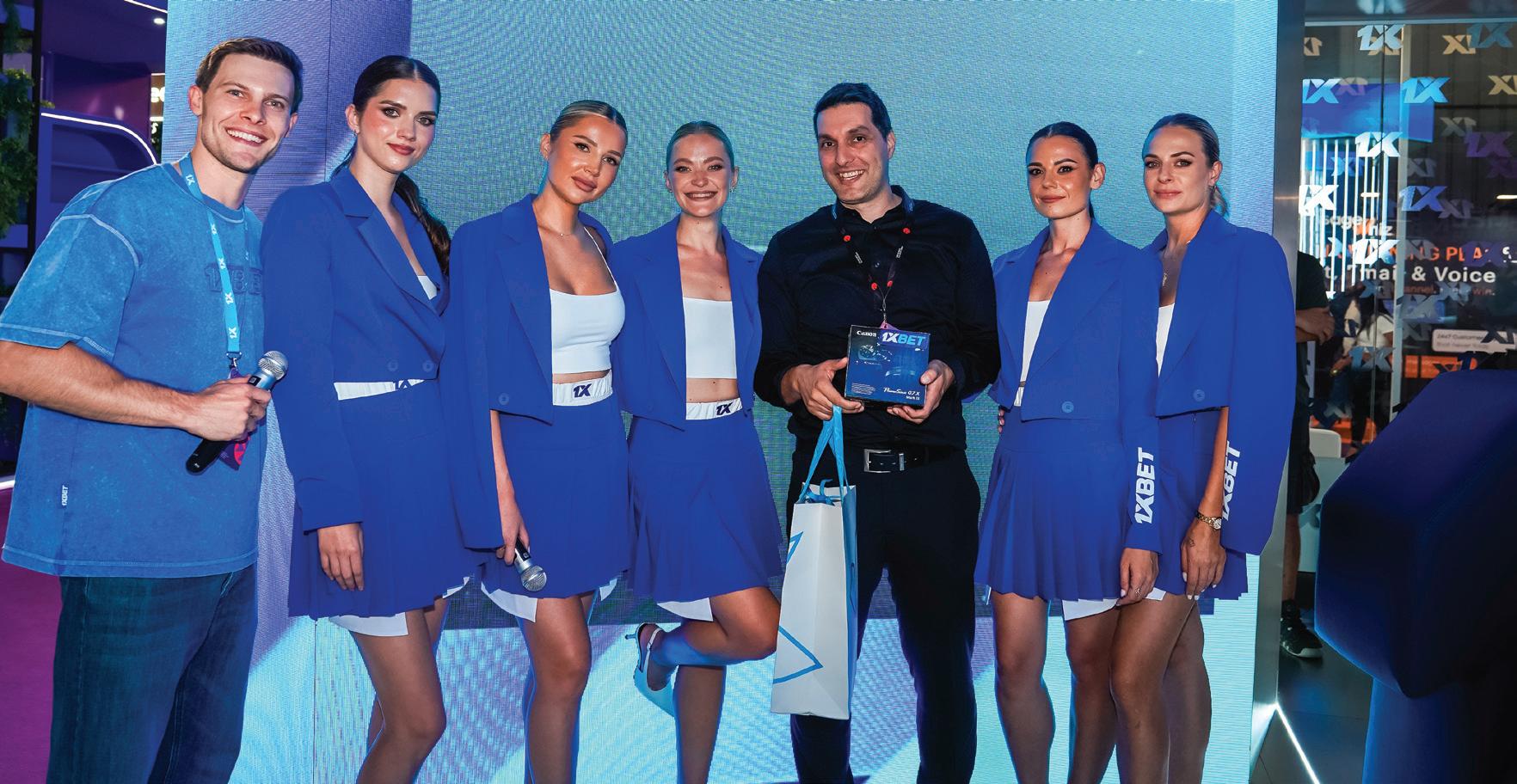
You’ve worked extensively across B2B and sports betting. How will those experiences shape the guidance you’ll provide to a global operator like 1xBet?
Good question. This is a journey 1xBet and I have embarked on together. I see it as a long-term project. On the B2B side, I spent years trying to work with operators like 1xBet who are one of the biggest in the world, so it’s a natural fit now. We’re committed to growth in regulated markets, especially Western Europe, where I’ve got deep experience.
It’s a bit poacher turned gamekeeper. I understand how B2B pieces interlink and how to translate that into operator value. And 1xBet is huge – there’s a lot I can learn here too, which is one reason I took the role. I bring B2B, sportsbook and casino; 1xBet brings a proven, global footprint.
1xBet already has a strong international footprint. Where are the biggest opportunities for further growth – in sports books and casino gaming?
You’ll see news soon that answers this
directly. We hold licenses in Spain and Ireland, and we’re seeking further expansion in Western Europe. Those licenses carry credibility. We’re very strong in Africa and we now hold 35-plus licenses worldwide. You can’t talk regulation without LatAm; we’re active there and there may be more license news coming. In short, we have regulated, sustainable expansion across Europe and LatAm while consolidating what we’ve built.
The company talks about “sustainable entry” into new markets. What does that mean in practice? Two things. First, engage the regulator, don’t just comply. Regulation is dynamic and it evolves. We want to help shape practical rules that keep players in the regulated market rather than drifting to dotcoms. Second, player protection and safer gambling. We’ve got initiatives coming before year’s end. Sustainability is about partnering with regulators to evolve the rules and give players a safe, enjoyable experience. Let’s not forget: This is entertainment.
Regulatory environments are shifting fast. How can global brands like 1xBet not only adapt but lead on compliance and responsible gaming? Have a seat at the table. No framework is perfect; even mature markets like the UK and Italy are revisiting legislation. Share operational insight so regulators can protect players and create attractive conditions for licensed operators. Leadership is engagement plus execution.
You’ve warned against trendchasing in iGaming. How will you drive authentic innovation at 1xBet without getting caught in hype cycles?
Start with the player, not the buzzword. In B2B, we too often asked what the operator wanted; we should ask what the customer values. We’ve got 45,000-plus slots. Great, but most players have preferences. Use KYC in spirit – know your customer’s tastes – to present what they actually enjoy, not only what a supplier has paid to promote. AI is a tool, not a result. Define the outcome first (better experience, higher retention), then apply AI or personalization to deliver it.
Sports betting is increasingly intertwined with media and entertainment. Should casino brands evolve in a similar way to stay relevant with new generations? Yes, but the route differs. For B2B, a big brand ambassador rarely changes outcomes and brings little value in my opinion. Streamers and influencers often move the needle more efficiently. For operators, partnerships like FC Barcelona add brand power. For studios, targeted creators can beat global sponsorships on cost and impact.

How important is it for 1xBet to balance ambitions in sports book with continued development of its casino offering?
They’re mutually reinforcing. The sports book may be more visible through sponsorships, but the casino is equally important, and we won “Casino Operator of the Year” at the SiGMA Awards. Both products must be strong.
AI and data personalization are hot topics. You’ve said AI should be seen as a tool, not a solution. Where does tech genuinely enhance the player experience?
Decide the problem first; don’t start with “AI will fix it.” Plenty of sectors still get personalization wrong. Look at generic recommendations on big platforms. In gaming, use AI/ML to improve relevance, speed and service (smarter lobbies, faster payouts, better support), always with safer gambling in mind.
You’re described as someone who bridges strategy and execution. What does that mean for your advisory role at 1xBet?
A no-bull, low-ego approach: clear strategy, followed by daily delivery.

1xBet has momentum; my job is to take it from 100 mph to 150 mph to 200 mph, through hard work, simplicity and alignment. Keep politics out. Keep execution tight.
Acquisition and retention must be interconnected. How do you align them to create a seamless player journey?

CAC is rising, so retention is critical. We focus on seamless journeys, fast payouts, relevant communication and respect for player preferences. Don’t over-market. Treat players as people, not commodities. Entertain first; value follows.
On leadership and culture – you’ve noted that not everyone is born to be a manager. How will you influence leadership development within 1xBet? Empower people; don’t ask anything you wouldn’t do yourself. Be authentic. Manage burnout risk. We’ve moved from a bar-at-6 a.m, culture to a morecorporate, accountable industry. Build teams that can sustain that shift and still keep the hunger.
Looking ahead, what do you hope to achieve at 1xBet in the near term and where would you like the brand positioned globally in three to five years?
Near term: Expand in regulated markets, deepen supplier partnerships and localize smartly within a global brand. Three to five years: Maintain top-tier partnerships (e.g., FC Barcelona, FIBA) and add selective ones. Keep building brand power and credibility worldwide by engaging governments, regulators, and media. We want to be visible, respected and part of the conversation everywhere we operate.
Any piece of advice to the next generation of industry leaders – in casinos or sports betting? Be brave. Be bold. Stay grounded. Work on your personal brand but don’t put it above your company. Deliver first; reputation follows. We’re lucky to work in this industry. If you don’t love it, be honest with yourself and find something else you have a passion about.
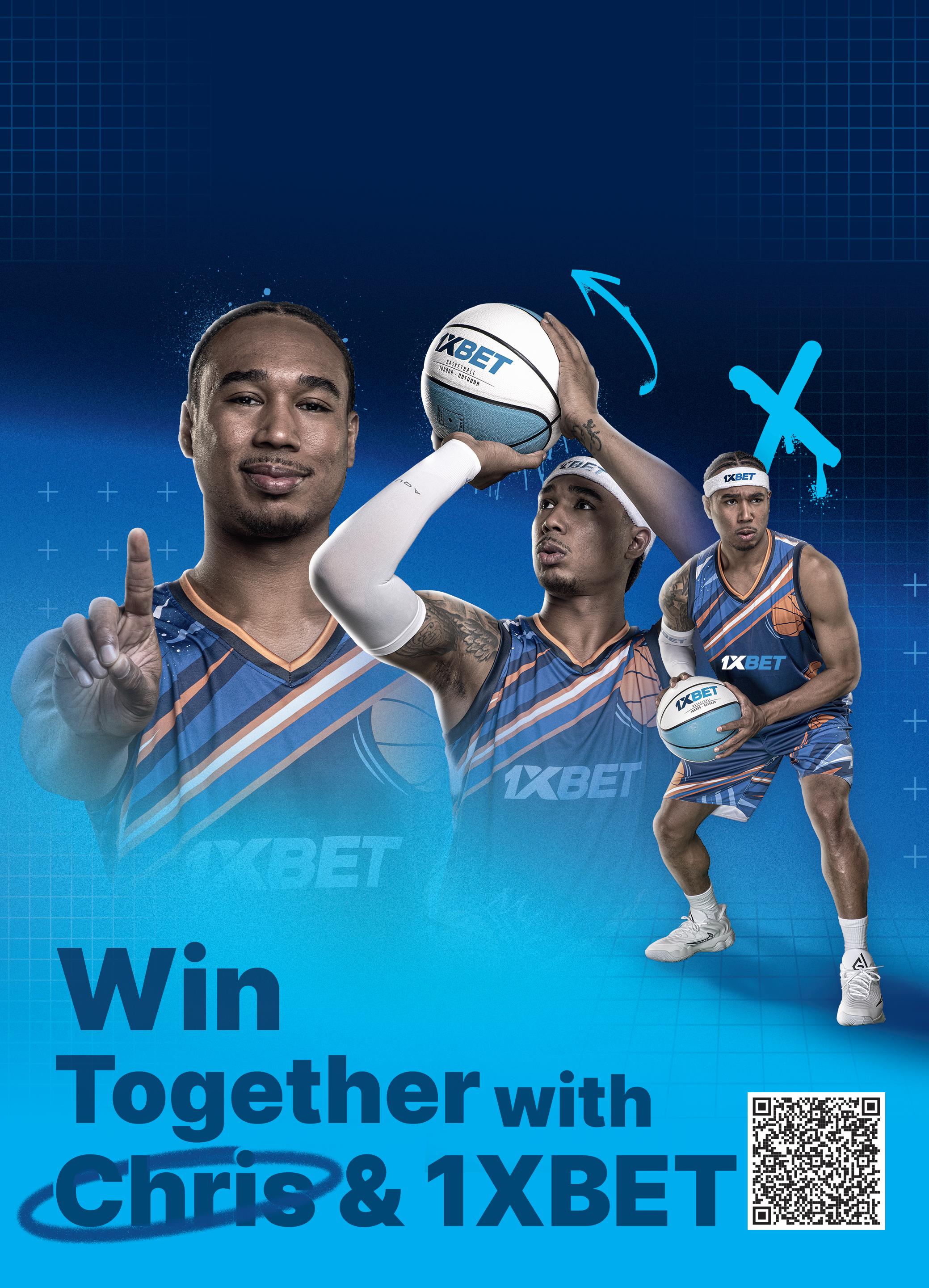


For Brooks Pierce, president and CEO of Inspired Entertainment, localization isn’t just a strategy, it’s a blueprint for the future of virtual sports. With operations spanning 35 jurisdictions and more than 32,000 retail venues worldwide, Inspired has built its reputation on delivering cutting-edge, engaging content that resonates with players. The company’s recent launch of V-Play Football Brazil with EstrelaBet, powered by Altenar, marks what Pierce calls a “major milestone” in Inspired’s commitment to Brazil and the broader LATAM region. In this exclusive interview, Pierce discusses how Brazil’s passion for
football makes it a pivotal market in Inspired’s growth strategy, why cultural tailoring is essential for success in regulated markets, and how balancing global partnerships with local relevance is shaping the company’s next phase of expansion. From localized virtual sports to hybriddealer innovations, Pierce offers insight into where Inspired is heading – and how the company plans to stay ahead of evolving player demands worldwide. Our conversation has been edited for clarity.
Inspired recently launched V-Play Football Brazil with EstrelaBet, designed specifically to reflect the flair and energy of Brazilian football.
You called this a “major milestone” in Inspired’s commitment to Brazil. How big of a role do you see Brazil playing in Inspired’s long-term growth strategy across LATAM?
Brazil is central to our long-term growth strategy in LATAM. As the largest sports betting market in the region and a country where football is deeply ingrained in the culture, launching a product that is specifically tailored to this audience shows our commitment to establishing a meaningful, enduring presence in Brazil. We also view Brazil as a strategic springboard into the broader LATAM market. Keeping our approach focused on localized offerings, forging strong partnerships and engaging with evolving regulatory landscapes are all essential for sustainable growth in the region.
This product feels tailor-made for the Brazilian audience. Will localization of virtual sports become a core strategy in other regions – for example, cricket in India, basketball in the Philippines or baseball in Mexico?
Localization is a core part of our strategy. While globally recognized sports like football, basketball, and hockey have universal appeal, regional markets often seek content that feels native and culturally resonant. Just as Brazilian fans connect more deeply with a Brazil-themed football product, we see opportunities to replicate this approach, whether through cricket in India, basketball in the Philippines or baseball in Mexico. Our goal is to seamlessly blend our world-class products with experiences that resonate culturally.
In addition to V-Play Football Brazil, Inspired also recently launched V-Play NHL, NBA Re-Play and Re-Play eSports with bet365. How do you
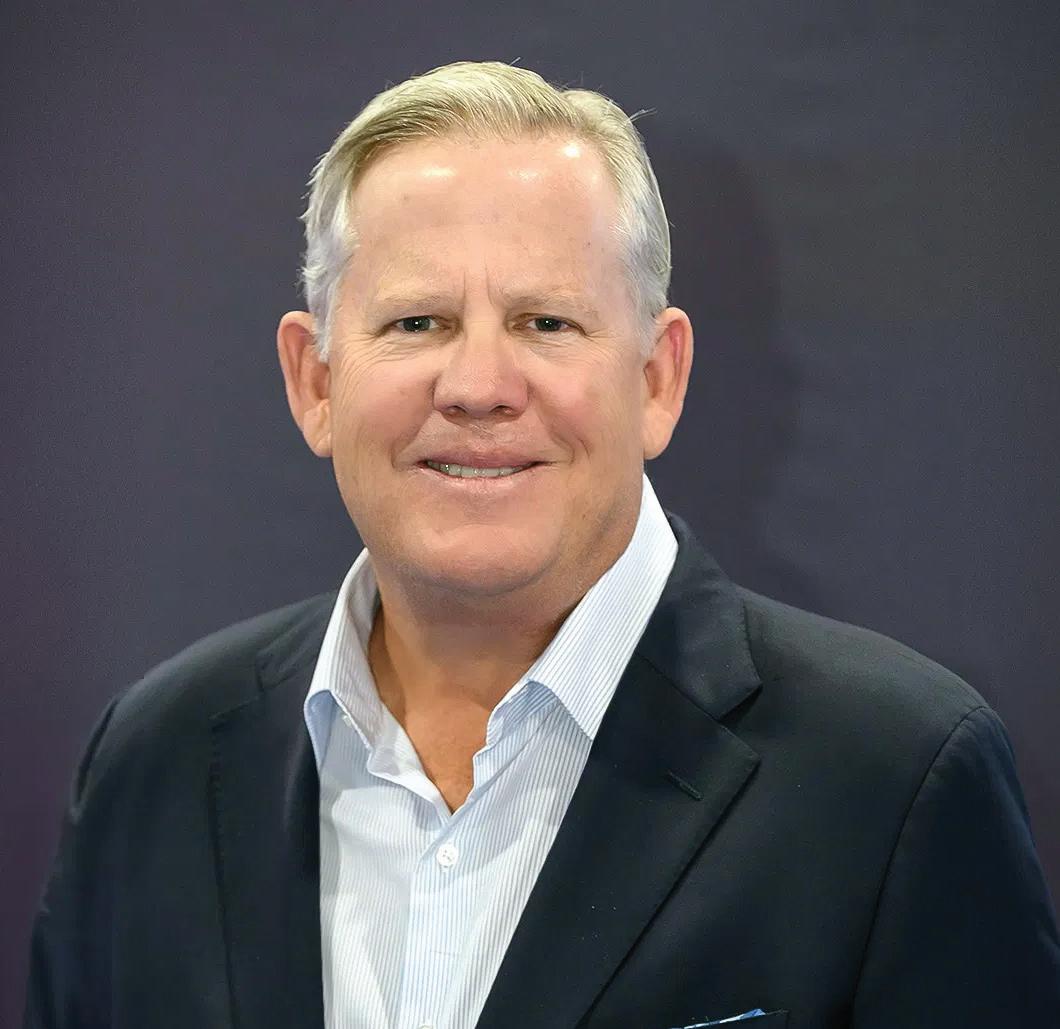
balance globally recognized, licensed products with regionally localized offerings like the EstrelaBet launch? It’s a balance of breadth and depth. Globally licensed products, such as V-Play NHL and NBA Re-Play, provide us with widespread appeal. They showcase our technical capabilities and strong partnerships with iconic leagues. Localized offerings like V-Play Football Brazil enable us to resonate more deeply within specific markets, demonstrating our adaptability and commitment to regional audiences. Both approaches are complementary. They allow us to build a diverse portfolio that combines global scale with regional relevance, aligning perfectly with what operators are seeking.
Do you anticipate Brazil being a gateway market for further expansion in LATAM, perhaps through partnerships with other local leaders? Brazil serves as both a proving ground and a gateway. The lessons we learn, the partnerships we build, and our understanding of the regulatory environment and content localization will all inform our broader expansion
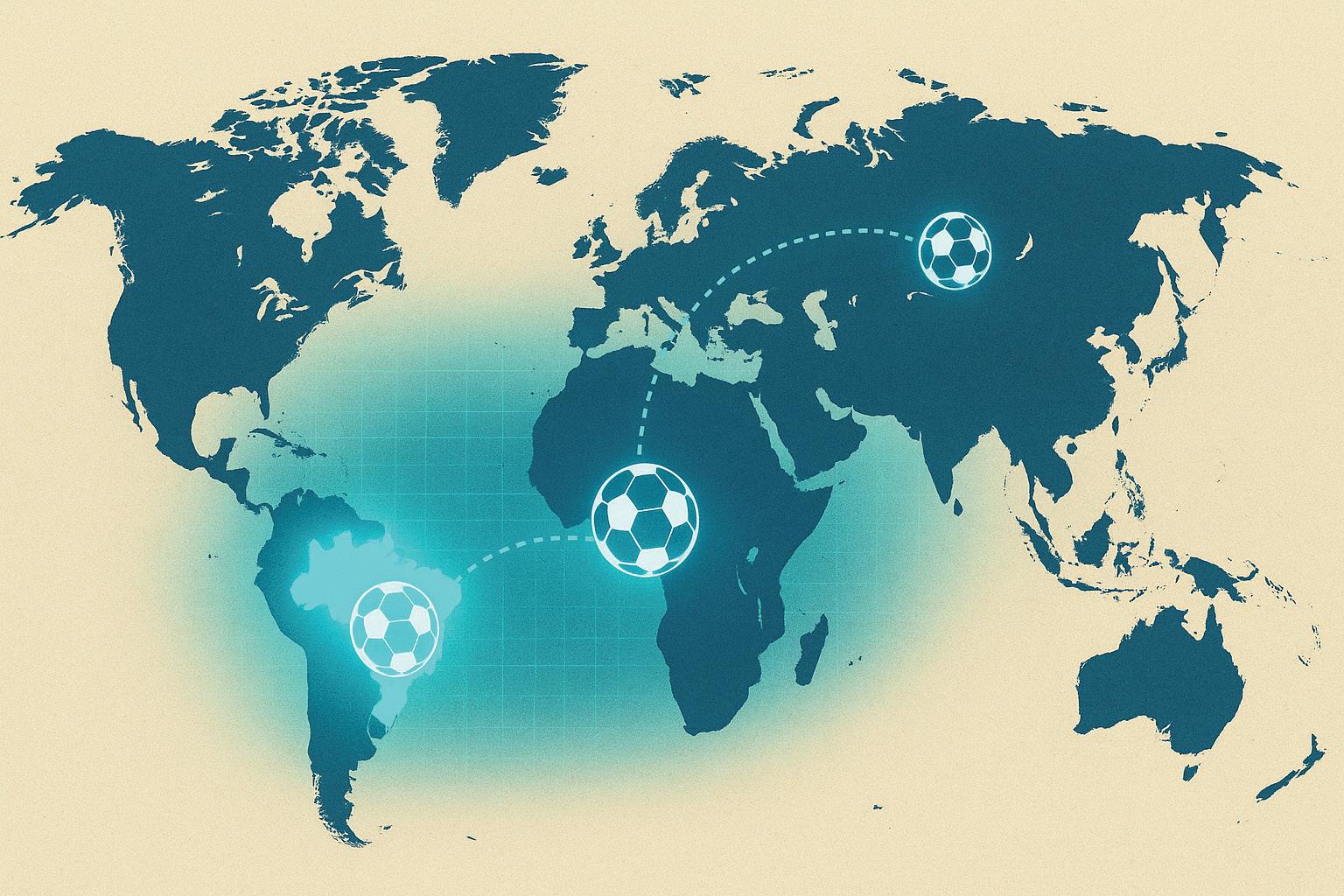
AT INSPIRED, REGULATION AND INNOVATION GO HAND IN HAND. WE OPERATE IN REGULATED MARKETS WORLDWIDE AND COMPLIANCE IS THE FOUNDATION OF EVERYTHING WE DO.
AT THE SAME TIME, WE’VE DESIGNED OUR PRODUCTS TO BE FLEXIBLE.
across LATAM. We are already exploring opportunities with other local leaders and, as regulations continue to mature across the region, we see Brazil paving the way for a wave of localized launches throughout LATAM.
How do you balance innovation with regulatory requirements across different jurisdictions?
At Inspired, regulation and innovation go hand in hand. We operate in regulated markets worldwide and compliance is the foundation of everything we do. At the same time, we’ve designed our products to be flexible. We can adjust betting
markets, schedules, event frequencies or presentation styles to meet local regulatory requirements without compromising entertainment value. By working closely with our partners, we ensure that our innovations are aligned with the specific needs of each jurisdiction.
Do you view regional launches like V-Play Football Brazil as “blueprints” for global product localization or are they bespoke one-offs? Each localized launch is tailored to its specific market, but the methodology, cultural research, local operator partnerships and regulatory alignment serve as a blueprint for replication
elsewhere. V-Play Football Brazil will not look identical to future cricket or baseball products, but the core principles behind its development will remain consistent. Brazil has provided us with a model that we can leverage as we explore other high-growth regions requiring tailored products.
Inspired has a strong retail and lottery presence alongside digital. How are you connecting those experiences for players?
We are focused on creating a seamless experience across retail, lottery and digital channels. Our Virtual Sports are live in more than 32,000 retail venues worldwide. We’ve also brought those same products to online and mobile platforms. For example, in Virginia, our VSports games demonstrate how Virtual Sports can thrive within a lottery environment while being accessible digitally. For players, this means a consistent, engaging experience wherever they choose to play.
What do you see as the biggest opportunities for Inspired Entertainment in the next 12–24 months?
We see three major opportunities. First, expanding in Brazil and across LATAM with localized content; second, enhancing player engagement through new mechanics, bet structures and expanding virtual offerings beyond traditional sports; and third, building on the early success of our hybriddealer products, which bridge traditional casino play with interactive entertainment. Together, these areas provide a strong runway for growth.
How do you see player behavior evolving, and how is Inspired adapting to stay ahead of those shifts?
Players are increasingly demanding

faster, more authentic content. With attention spans shortening, there’s a growing appetite for products that combine the realism of broadcast sports with quick, exciting gaming experiences and the convenience of 24/7 betting. Inspired is proactively responding by developing new betting options that virtual sports have not previously offered, utilizing the latest technology, and leveraging AI-driven enhancements that make it hard to believe our products aren’t live sports. Additionally, our products are highly configurable, enabling operators to customize experiences to suit their audiences’ preferences.
Inspired operates in 35 jurisdictions with more than 32,000 retail, virtual sports venues worldwide. With Brazil now added to the map, what other regions are at the top of your priority list for 2026?
Our immediate focus is on further expanding within Latin America, alongside continued growth in North America. We are also building on our success in Europe. Across all these regions, our priority is targeting regulated markets where we can deliver localized, high-quality products that foster sustainable growth.

How to join 1xPartners if you don’t have a website
Many people believe that to make money online using affiliate programs, you need a website. In fact, that’s no longer the case. The 1xPartners affiliate program offers earning opportunities even for those without a personal website. All you need is access to popular platforms where you can place advertising creatives and referral links, attracting new players.
without a Website?
1. Social media
Facebook, Instagram, TikTok and other social media platforms are excellent places for promotion. You can create posts, stories, run your thematic channels or communities — there’s always demand for high-quality, useful content. Live interaction
and building trust with followers increase conversion rates on your referral links.
2. E-mail newsletters
If you have a subscriber base, you can integrate affiliate materials into your mailing list. This channel is still considered one of the most effective: The letter is delivered directly to the potential player’s inbox, which helps retain the audience and attract new users.
3. YouTube and other video platforms
Video content is becoming increasingly popular. Reviews, streams, tutorials, sports predictions or entertaining videos can be supplemented with referral links in the description. The audience on YouTube and other platforms responds well to promos when they are organically integrated into the main content and presented in an engaging way.
4. Forums, chats and communities
Sports, betting, and gambling topics are actively discussed on forums, Telegram channels and chats. If you enjoy participating in discussions, you can share helpful information and subtly include a link — this will also bring in targeted traffic.
5. Traffic arbitrage
Contextual advertising, social media targeting, teaser networks, push notifications and other types of paid promotion deliver fast results. With a well-planned advertising campaign, you can achieve a steady flow of players and generate high profits.
6. Other options
The possibilities are almost endless: mobile apps, push mailings, video streams and blogs on third-party platforms. It all depends on your creativity and the chosen promotion strategy.
The 1xBet affiliate program team ensures that partners can earn as effectively as possible, even if they have no prior experience or website.
• Ready-made advertising materials –banners, landing pages, and promo codes adapted to different regions and languages.
• Extensive reach – you can attract players from over 150 countries.
• A personal manager – who helps you choose a strategy, optimize campaigns, and achieve the best results.
• Multilingual support – more than 70 languages.
• Convenient analytics – transparent, real-time statistics available in your account.
• Regular weekly payouts – you can
access over 250 payment methods, including bank cards, e-wallets, and cryptocurrencies.
by the Numbers
• Over nine years in business – trusted by more than 500,000 partners.
• Presence in 150-plus countries –global coverage and methods that have proven effective in different markets.
• More than 250 payment options –convenient and fast payouts.
• Lifetime accruals of up to 50 percent from the income of attracted players.
• Exclusive offers for VIP partners –increased commissions and special conditions.
1. Accessibility – no need to invest in source development, just use social media or video-hosting platforms.
2. Ready-made tools – creatives and links are provided by the affiliate program.
3. Support – personal managers assist beginners in navigating the process.
4. Flexibility – various monetization models, including RevShare up to 50 percent.
5. Reliability – the 1xBet brand is recognized worldwide and its affiliate program has earned prestigious honors, such as the SBC Awards, IGA, and SiGMA Awards.
Earnings in the 1xPartners affiliate program are accessible to everyone, even if you don’t have a website. The project team provides participants with everything they need to succeed. 1xPartners is a reliable and proven opportunity to get a stable income with minimal investment.
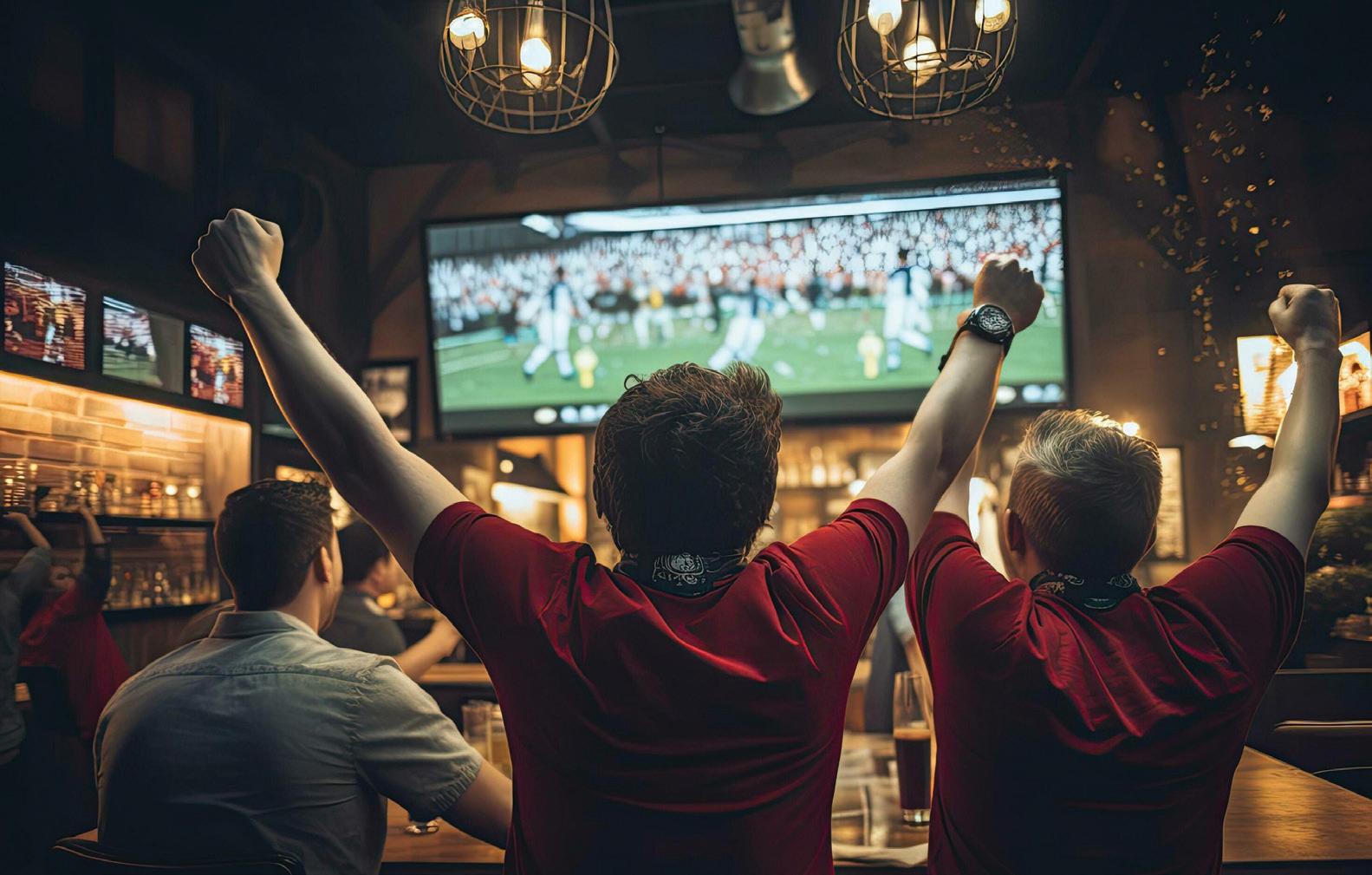
By Mark McGuinness
With the new NFL season kicking off, millions of fans are diving into fantasy leagues and pick’em contests long before placing a bet. Sports books should take note: Free-to-play prediction games provide the same safe, social entry point, building confidence, responsibility and genuine enjoyment without the financial risk.
When I speak with peers in the industry, one theme keeps surfacing time and time again: Acquisition costs are climbing, bonuses are losing their
impact and customer loyalty is harder to win. The reflex has been to double down on traditional tactics. Lo and behold, bigger sign-up offers, more inplay markets and ever-faster payments.
But let me ask a blunt question. When was the last time a welcome bonus genuinely built a relationship with your brand?
In my experience, these transactional incentives are short-term sales campaigns, not long-term solutions. If we want sustainable growth, we need to start engaging fans before they become bettors and that’s where freeto-play prediction games come in.
For too long, sports betting has been treated as a one-dimensional experience: player against bookie, money at stake, winner takes all. We’ve neglected the essence of what makes sport compelling … the social experience, the camaraderie, the bragging rights.
Prediction games change that dynamic. They reframe the sports book not just as a place to gamble but as a community hub where fans can test knowledge, engage socially and build a connection without the initial financial risk.
If you want a master class in fan and sports engagement, look no further than the NFL. The league has built enormous digital communities around prediction-style experiences, fantasy football, weekly pick’em games and bracket challenges. None of these require a financial stake, yet millions of fans spend countless hours immersed in them. Why? Because they provide connection, pride and the chance to showcase knowledge of “their” team.
The NFL proves that prediction games are not sideshows. They are core to how fans engage, talk and return week after week. Sports books that ignore this are effectively leaving fan loyalty and future bettors on the table.
Sports are inherently tribal. Fans want to compete, not just against the book but against each other. They want to prove they know more about the Saturday fixtures than their mates. Yet, the traditional sports book experience is remarkably solitary. You place a bet, you watch the event and the outcome is yours alone.

Prediction games inject the missing ingredient: community. By adding leaderboards, private leagues and weekly challenges, sports books can create an ecosystem where the motivation isn’t just monetary. It’s the pride of topping the table, the fun of out predicting friends, the banter that keeps fans returning.
That shift we need is from solitary betting to social competition and it can be profound. It transforms a transactional pastime into an ongoing relationship.
There’s another benefit here and it’s one the industry too often overlooks: social responsibility. Dropping a firsttime player straight into real-money gambling funnel, to use our previous example, is like asking someone to drive a Formula 1 car before they’ve passed their test. The risks are high, the pressure is immense and the odds of failure are greater than success.
Prediction games provide a safe, supportive environment. They allow players to build confidence, learn the mechanics and enjoy the social aspects of sport without financial loss. In Maslow’s terms, they’re closer to self-
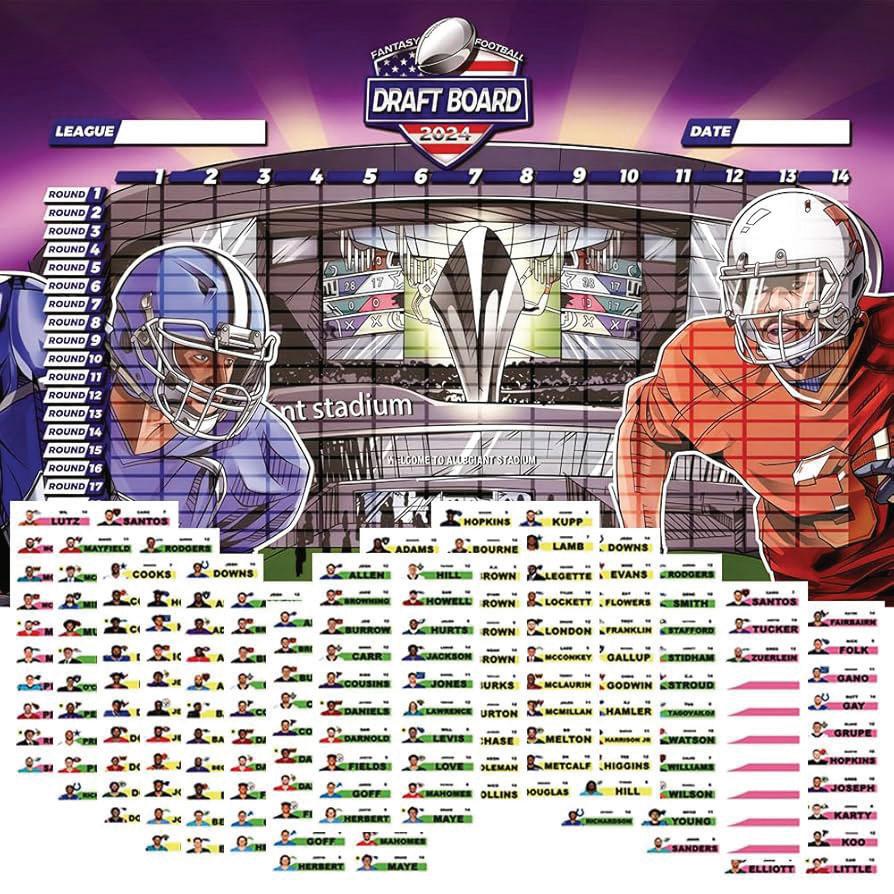
actualization than compulsion. Players get to enjoy mastery, competition and belonging, all without risk.
For an industry under constant scrutiny, this approach strengthens the case that sports books can be proactive in promoting healthier, more sustainable behavior very early on in the customer journey, not after the horse has bolted.
From a purely commercial perspective, the case for prediction games is equally strong. They are an acquisition tool that delivers engaged audiences at a fraction of the cost of traditional marketing campaigns, while also

providing an invaluable stream of data, namely insights into player preferences, favorite sports and behavioral patterns. This intelligence provides personalized marketing and conversion strategies that far outstrip the blunt instrument of bonus-led acquisition.
At the same time, prediction games are a proven retention driver. They give fans a reason to log in daily, ensuring the sports book brand remains ever-present even when a player is not actively betting. More time spent on the platform translates to higher frequency of wagers when the player does decide to cross into real-money play. Importantly, they offer a compliant, brand-safe mechanism for engagement in markets where advertising or bonuses are heavily restricted, helping operators build awareness and loyalty in advance of regulatory approvals.
The traditional model of competing on bonuses and product features has diminishing returns. It is a marketing race to the bottom. Recreational players churn quickly. High rollers are expensive to acquire and volatile to retain. Regulators are narrowing the guard rails.
So I’ll pose another question: Can we really afford to ignore a model that builds community, strengthens brand equity and promotes responsibility at a lower cost?
Think of prediction games as the “soft landing” of the sports betting funnel. They give fans an on-ramp and a way to engage without financial pressure, to learn the ropes, to build confidence. When they do transition

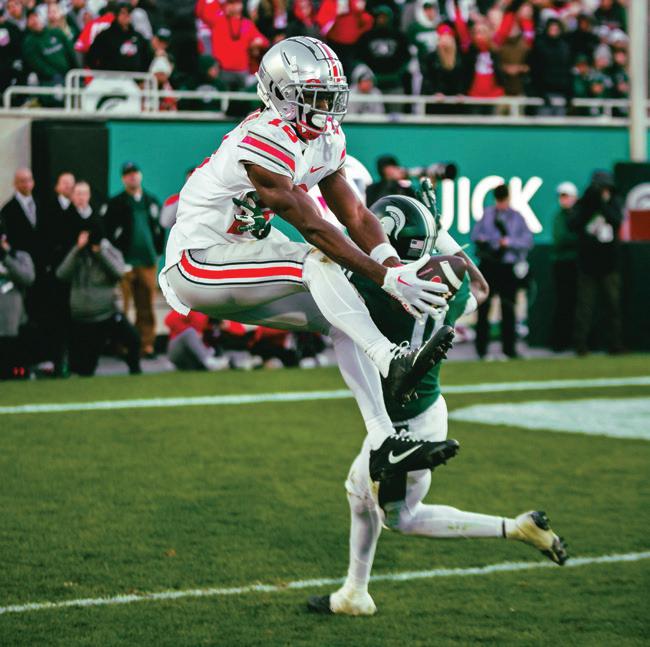
to real-money play, they’re more likely to stay because the brand relationship is already established.
It’s not about gimmicks or side shows. It’s about reimagining engagement for the long term, in a safer and more responsible manner.
We face a choice. We can continue chasing high-rollers and burning marketing budgets on bonuses that deliver fleeting loyalty. Or we can embrace prediction games as a way to widen the funnel, foster responsibility and drive sustainable growth.
Every sports book wants to be top of mind when a fan decides to place

Mark McGuinness is a global marketing leader with 20-plus years of experience across Web3, iGaming, and crypto. He specializes in building community-first brands, scaling growth strategies, and integrating NFTs, tokens and decentralized ecosystems into engaging digital experiences. As CMO of Devilfish.com, he is redefining social poker for a new generation of free-to-play players via monetization of digital avatars and microtransactions within the co-creator ecosystem.
a bet. Free-to-play prediction games make sure you’re already in the at least in the start of the conversation and long before money changes hands. In my view, they’re not just an opportunity. They’re part of the future of our industry’s engagement strategy.

How a coalition of tribes, state regulators and collections firms are turning the tables on prediction markets. By Katherine A. Baker, Joshua L. Kirschner & Samantha Ahearn
Leading prediction-market operators are facing a barrage of federal and state lawsuits brought by tribes and faceless “gambling recovery” LLCs in recent months. This highlights the fine line between sports-based event contracts and sports betting. These suits turn the tables in an ongoing in-court fight over the proper categorization of these types of event contracts. It has been, to date, driven by prediction market plaintiffs in response to state regulatory action.
The first chapter of this story arises out of cease-and-desists and other enforcement actions by several state
gaming regulators against prediction markets for allegedly offering illegal sports betting to state residents through event contracts. (See David Purdum, et al., ESPN, How Kalshi and prediction markets are disrupting sports betting (Jun. 2, 2025), https:// www.espn.com/espn/betting/story/_/ id/45377686/kalshi-predictionmarkets-disrupt-sports-betting; Zak Thomas Akoo, NEXT.io, Arizona sends C&Ds to Kalshi, Robinhood and Crypto. com (May 23, 2025), https://next.io/ news/regulation/arizona-sends-cdskalshi-robinhood-crypto-com/.)
Event contracts allow traders to bet on the likelihood of specific events, such as political elections, awards
winners or, in this case, sporting-event outcomes. The states that have issued cease-and-desist letters are Nevada, New Jersey, Maryland, Montana, Ohio, Illinois and Arizona. (See supra Purdum, et al.)
In addition, regulators in other states, like Washington, have publicly labeled the exchange of money for predictions that occurs on prediction market platforms as illegal gambling. (Matt Markovich, Kiro News Radio, Betting on the election is now available, but don’t try it says the state (Oct. 31, 2024), https://mynorthwest. com/money/betting-on-the-electionis-now-available-but-dont-try-it-saysthe-state/4004138.)
Beginning in March 2025, prediction market operators initiated an offensive approach by refusing to comply with such directives and suing regulators in Nevada, New Jersey, and Maryland on federal-preemption grounds, given that prediction markets are regulated by the federal Commodity Futures Trading Commission (CFTC). (See supra Purdum, et al.; see, e.g., KalshiEX, LLC v. Hendrick, et al., Case No. 2:25-cv-00575-APG-BNW (D. Nev. filed Mar. 28, 2025)); KalshiEX, LLC v. Flaherty, et al., Case No. 1:25-cv-02152 (D. N.J. filed Mar. 28, 2025); Robinhood Derivatives, LLC v. Dreitzer et al., Case No. 2:25-cv-01541 (D. Nev. filed Aug. 19, 2025).)
In the midst of this regulatory action and litigation, on July 22, 2025, three federally recognized American Indian tribes – Blue Lake Rancheria, Chicken Ranch Rancheria of Me-Wuk Indians, and Picayune Rancheria of Chukchansi Indians – filed a complaint in the U.S. District Court for the Northern District of California against Kalshi Inc. and Kalshiex LLC (together, “Kalshi”), Robinhood Markets Inc., and Robinhood Derivatives LLC (together, “Robinhood”), and unidentified John
RIGHT: Katherine Baker, a Boston-based partner at Nelson Mullins Riley & Scarborough LLP and chair of the firm’s Gaming Industry Group, assists casino gaming, iGaming, sports betting, and fantasy sports operators, vendors, and entrepreneurs in navigating the state and federal commercial, and tribalgaming landscape, including leveraging fintech solutions.

parties. (See Blue Lake Rancheria, et al. v. Kalshi Inc., et al., Case No. 1:25cv-06162 (N.D. Cal. July 22, 2025).)
The complaint seeks preliminary and permanent injunctive relief to prevent Kalshi and Robinhood from allegedly engaging in illegal sports gambling on the tribes’ respective reservations in violation of the Indian Gaming Regulatory Act (IGRA), tribal gaming ordinances, the Racketeer Influenced & Corrupt Organizations Act (RICO), and other laws. (See id.)
The event contracts at issue in the Blue Lake Rancheria complaint are sports-event contracts that allow users to bet on sports outcomes. California prohibits sports betting. Therefore, in the complaint, the tribes argue that Kalshi’s sports betting offerings are not “true” event contracts because sports betting “serves no hedging or other economic purpose … Nor does it perform any price-discovery function on an underlying commodity.” (See id.) Instead, the Tribes argue that it is “simply gambling on sports,” which Kalshi is “unabashedly” offering to the public within states and Indian reservations that strictly prohibit sports betting. (See id.)

On August 20, 2025, another federally recognized American Indian tribe, the Ho-Chunk Nation, filed a nearly identical complaint in the U.S. District for the Western District of Wisconsin against the same defendants. (See Ho-Chunk Nation v. Kalshi Inc., et al., Case No. 3:25-cv00698 (W.D. Wis. Aug. 20, 2025).)
Similar to the California complaint, the Wisconsin complaint seeks injunctive relief against predictionmarket operators to prevent alleged, illegal sports gambling on the tribe’s land in violation of IGRA, the tribe’s Tribal-State Gaming Compact with Wisconsin, tribal gaming ordinances, RICO and other laws. (See id.)
On top of these federal lawsuits, Kalshi and Robinhood are also facing several concurrent lawsuits brought in state court under a different theory – that funds lost on prediction market platforms are recoverable (by anyone) as gambling losses under state gambling loss recovery statutes. The complaints, which are mirror images of each other, were filed in the state courts of Georgia, Illinois, Kentucky, Massachusetts, Ohio and South Carolina by a string of newly formed, limited-liability companies
LEFT: Joshua Kirschner,an Atlanta-based attorney at Nelson Mullins Riley & Scarborough LLP, focuses his practice on the gaming and gambling sectors, and represents businesses and individuals in a wide variety of regulatory and white-collar litigation matters. A primary focus of his practice is assisting casino, iGaming, sports betting, and daily fantasy sports operators, vendors, and entrepreneurs to navigate the state, federal and tribal gaming landscapes.
(Georgia Gambling Recovery LLC, Illinois Gambling Recovery LLC, Kentucky Gambling Recovery LLC, Massachusetts Gambling Recovery LLC, Ohio Gambling Recovery LLC and South Carolina Gambling Recovery LLC).
These companies, which apparently were formed solely for the purpose of collecting damages in these actions, have no connection to the underlying “gambling” activity and are suing as relators in their own name and for their own benefit. (See Sydney Price, Law360, Ohio Co. says Kalshi gambling suit belongs in state court (Aug. 28, 2025), https://www.law360.com/ articles/2382074/ohio-co-says-kalshigambling-suit-belongs-in-state-court.)
Like the federal lawsuits, these state lawsuits allege that Kalshi’s sports-event contracts are illegal sports betting disguised as legal financial products. But in place of federal statutory claims, the state suits assert claims under versions of the “Statute of Anne,” which were passed under Queen Anne in 1710 (and later adapted by various states). The statutes void certain gambling debts and allow third parties unrelated to the gambling activity in question to sue for and recover damages if the original bettor fails to act within a set period of time (e.g., six months). These types of claims have been trending in the U.S. against daily fantasy sports and sweepstakes-casino operators for the last few years, but their assertion in a lawsuit against prediction markets is novel.
While these more recent suits against prediction market operators are still in their early stages, Kalshi won its motion for preliminary injunction in Nevada and New Jersey federal court, and lost it in Maryland, with the latter two now on appeal. (See Tom Nightingale, SBC Americas,
Kalshi celebrates ‘big victory’ as court denies Nevada lawsuit dismissal (Jun. 6, 2025), https://sbcamericas. com/2025/06/06/kalshi-nevadamotion-to-dismiss-denied/; Corey Sharp, Play NJ, Kalshi wins preliminary injunction to continue operating in New Jersey (Apr. 29, 205), https:// www.playnj.com/news/kalshi-winspreliminary-injunction-to-continueoperating-in-new-jersey/89290/.)
Notably, in a briefing before the U.S. Court of Appeals for the Third Circuit, a collective comprising attorneys general from 34 states, tribal gaming organizations representing 60 different tribes, the Casino Association of New Jersey, the American Gaming Association (AGA), and several anti-gambling groups filed amicus briefs supporting New Jersey. (See Yogonet, States, tribes, and industry groups line up against Kalshi in high-stakes prediction market case (Jun. 19, 2025), https:// www.yogonet.com/international/ news/2025/06/19/108713-statestribes-and-industry-groups-lineup-against-kalshi-in-highstakesprediction-market-case.) They raised concerns over tribal sovereignty, state authority to regulate gaming and problem gambling. (See id.) The decisions from the Third and Fourth Circuits will undoubtedly shape the legal landscape for sports-based event contracts.
With prediction markets fighting legal battles from every angle, the status of sports-based event contracts is in question. In eyes of some gaming regulators, this activity has become just another form of gray-market gaming, which could have suitability implications for gaming operators who are already regulated or seeking to be licensed under state gaming regimes. (See, e.g., Amy Calistri, Covers, Ohio Sends Warning to
RIGHT: Samantha Ahearn, a Boston-based attorney at Nelson Mullins Riley & Scarborough LLP, is a litigator who focuses her practice on complex commerciallitigation and business disputes, insurance disputes, labor and employment matters, internal investigations, and gaming regulation.

Market Services (Aug. 26, 2025), https://www.covers.com/industry/ ohio-sends-warning-to-sportsbookscontemplating-prediction-marketservices-aug-26-2025.)
The rulings in these cases, along with response of state gaming regulators, are poised to create a sea change in how these platforms operate and are regulated. For example, if the federal cases hold that sports-event contracts violate IGRA, they will be restricted in their operations on tribal lands. Additionally, if any state court concludes that sports-event contracts violate the state’s gambling-lossrecovery law, offering such contracts in that state and others with similar gambling-loss recovery-laws may no longer be viable.
Finally, if the case against Maryland resolves in Maryland’s favor, it may trigger a domino effect of regulators across the county starting to require prediction-market operators to register as a sports betting operator, with appellate-level judicial support for that policy. As prediction markets walk the legal tightrope, the stakes — for innovation and regulation — have never been higher.
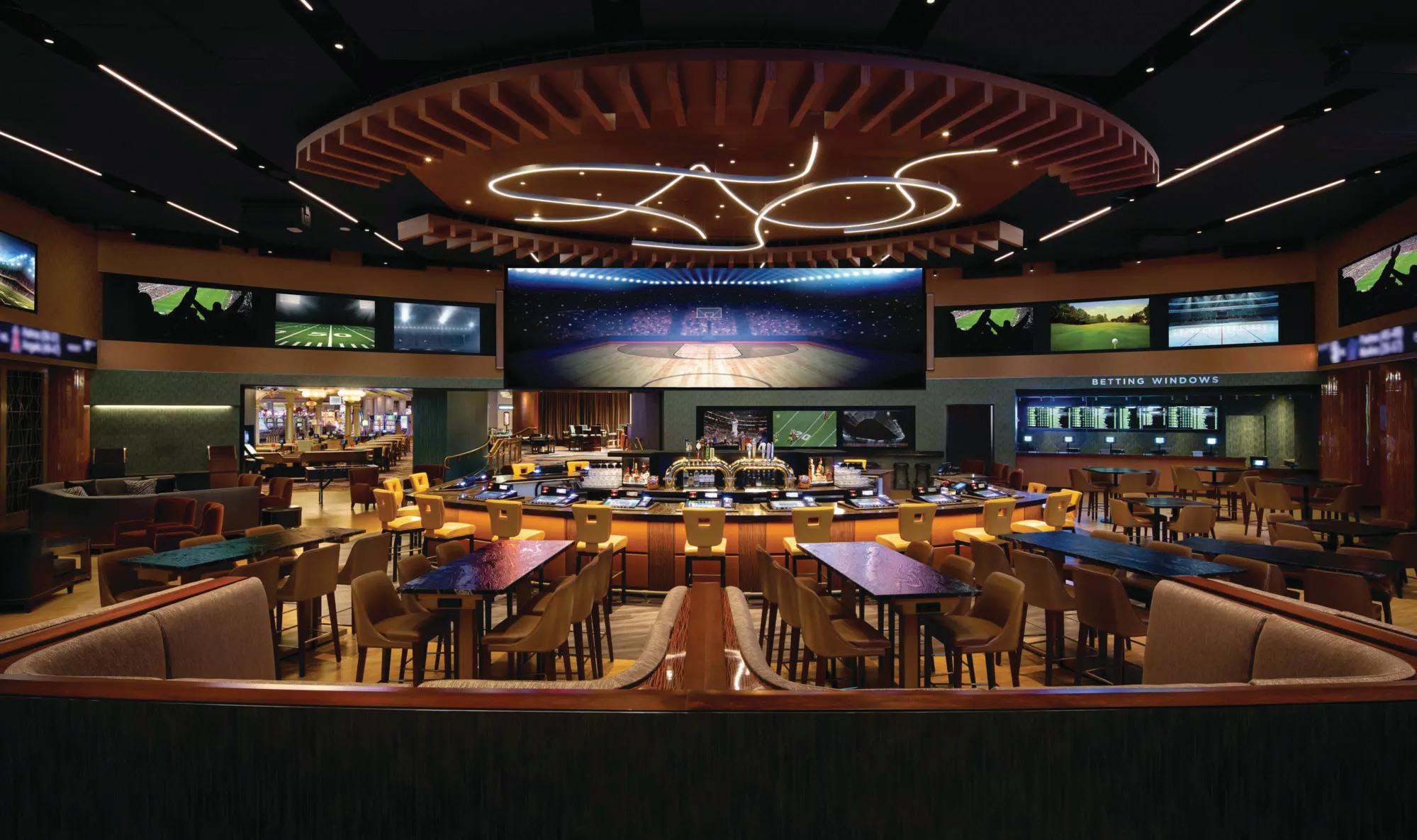
By Edwin Ford
When the British government released its Gambling White Paper in 2023, much of the commentary centered on online reforms and affordability checks. Yet one reform in the land-based sector stood out as a moment of genuine opportunity: the decision to allow sports betting in UK casinos.
That change became reality on July 22 2025, when the new regulations came into force, permitting casinos to offer sports betting both over the counter and (with the appropriate license), through self-service betting terminals. For the first time, UK casinos can participate in a market that has been dominated for
decades by high-street bookmakers.
But this is not just about adding another gambling product. It is about redefining what a casino can be in the UK.
Casinos in the UK have long battled a perception problem: that they are solely about gambling, reserved for a niche audience and cut off from the broader leisure market. This reform provides the opportunity to reshape that perception.
By integrating sports betting, casinos can position themselves not just as gambling venues, but as complete entertainment destinations. They can be places where people gather to eat, drink, socialize, watch live sports and yes, place a bet. The atmosphere shifts
from transactional to experiential. High-street bookmakers, by design, offer efficiency and accessibility. You place your bet, you collect your winnings and you leave. Casinos, however, are built for dwelling time. They already have bars, restaurants, lounges and a service culture. Introducing sports betting into that mix allows for a richer proposition, one where the betting is simply part of a wider leisure experience under one roof.
The high-street shop may remain the most convenient place to pop in for a quick flutter, but casinos now have the chance to offer something far more premium and social. Picture this: A group of friends meets at a casino on a Saturday evening. They place their bets before the football, order a round of drinks, share food and watch the match on giant screens in a purposedesigned lounge.
There’s an atmosphere, a sense of occasion and a service level that no bookmaker can match and, when the final whistle blows, the evening doesn’t have to end; there are tables, slots and late-night dining options right there. Sports betting, in this context, is not the endpoint but the starting point of an experience.
Most UK casinos already operate on a 24-hour basis. That alone sets them apart from bookmakers and makes them perfectly positioned to host global sporting events.
Take the Super Bowl as the most obvious example. Traditionally, fans in Britain have gathered in living rooms, staying up until the early hours with a handful of friends and some beers. Now imagine walking into a casino

at 1 a.m.: The big game is on massive screens, the atmosphere is electric, a crowd of fans is sharing the occasion, food and drink are served throughout the night, and the chance to place a bet is part of the experience.
It’s not just about wagering; it’s about creating a community event. A casino can become the place where sport is celebrated collectively, turning late-night games from a private affair into a shared social gathering. That will resonate strongly with customers.
We don’t have to imagine how this might work. We can look to Europe for proof.
• In Spain, casinos such as Casino Barcelona have embraced the sportsbook-lounge model. On match days, these areas transform into buzzing hubs: People come not just to gamble, but to watch, to eat, to drink and to share the event. The result has been clear: longer visits, higher F&B sales and a stronger reputation as a destination venue.
• In Austria, Casinos Austria has integrated sports betting into its venues for years, presenting it not as a side product but as part of a broader leisure experience. Their success lies in presentation: stylish lounges, attentive service and the positioning of betting as a complement to entertainment rather than the focus.



These markets demonstrate that when casinos bring betting into their mix, they don’t just compete with bookmakers. Instead, they redefine the category by making betting an experience, not just a transaction.
It’s also important to point out that UK casinos are uniquely well-placed to deliver this responsibly. Casinos have always operated under the strictest safeguards in the industry: ID checks at the door, membership systems, compliance teams on site and constant monitoring across multiple products.
This infrastructure means that when casinos add sports betting, they do so in an environment that is already structured for supervision and intervention. This makes them safer places to bet than many other outlets.
The facts are clear: Sports betting is now legal in UK casinos. But the significance lies in how the industry responds.
This reform gives casinos the chance to move beyond the outdated stigma of being purely gambling halls. Done well, it allows them to become hubs of entertainment, venues where gaming, betting, dining, drinking and live sports all come together in a single, premium, and social experience. If operators seize the opportunity, designing purposebuilt lounges, leaning into their 24-hour advantage and embracing their role as social hubs, then sports betting will become a powerful driver of footfall, dwelling time, and customer loyalty.
In short, this is not just about adding betting to the floor. It’s about creating atmosphere, building communities, and positioning casinos at the heart of leisure and entertainment. That is the true opportunity of this reform.


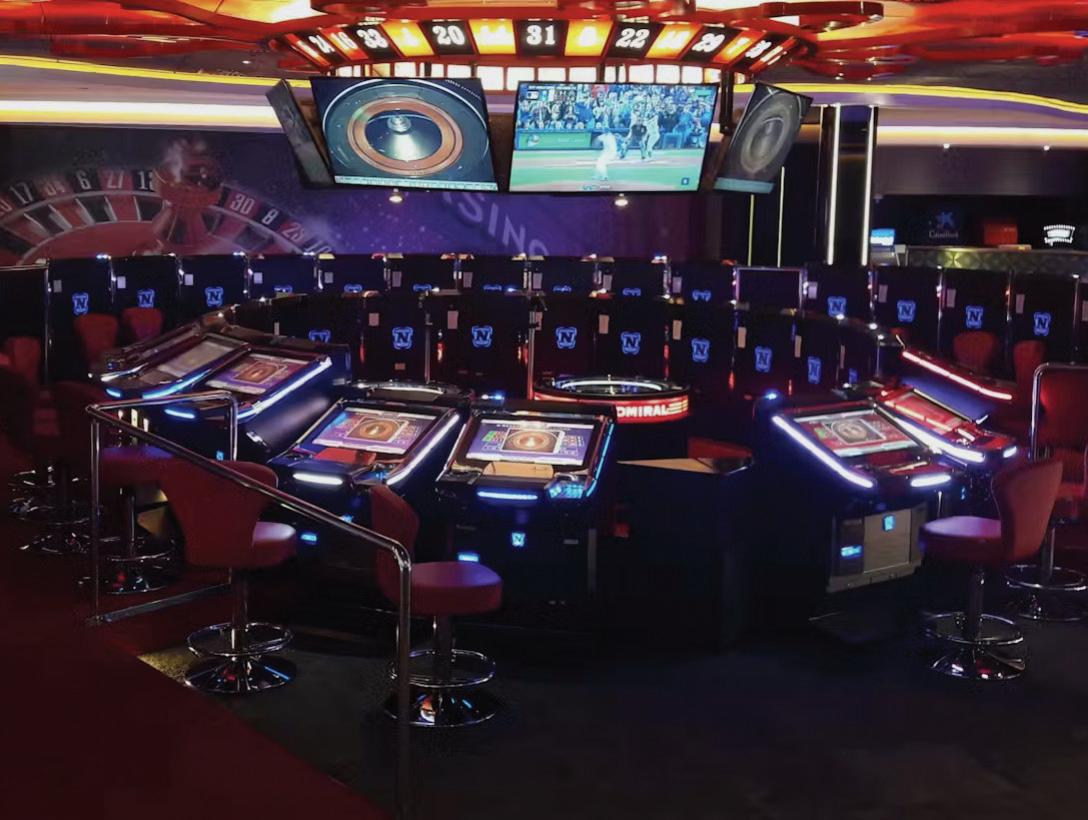
By Marko Mitevski
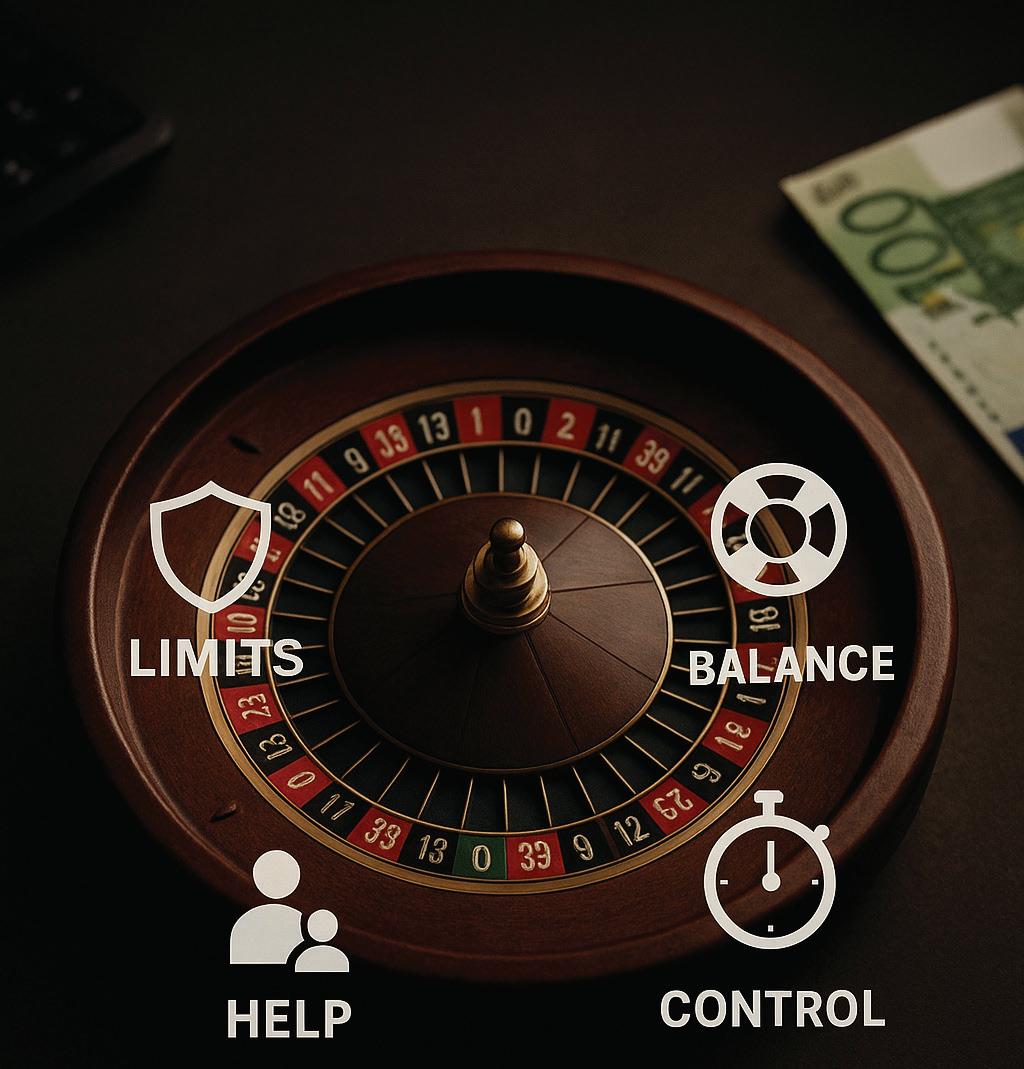
The past two decades have seen gambling explode in the Eastern European region. From the phenomenal rise of onlinebetting websites to the expansion of terrestrial casinos and sports books, gambling has been accepted as a new part of the entertainment economy in the region.
But with growth in the industry, there is an equally important need for proper responsible-gambling policies to safeguard at-risk communities. Eastern European countries are increasingly
recognizing this requirement and implementing frameworks, campaigns and regulatory methods for promoting gambling with control. This article explores how responsible gambling is being promoted across the continent, the continuing issues and the initiatives encouraging a safer bettor’s future.
Eastern Europe is not uniform when it comes to gambling legislation. Some countries, like Romania, Bulgaria, and the Czech Republic, have fully legalized
and regulated gambling industries. Others, like Ukraine and Serbia, are at various stages of reform. Despite the disparate legal climates, the common theme across all these nations is increasing awareness of gambling harm and the need for preventative interventions.
In countries where regulatory bodies are the most developed – like Romania’s ONJN (National Office for Gambling) and the Czech Republic’s Ministry of Finance – responsible gambling is already a regulatory obligation for operators. Licensing conditions often include mandatory self-exclusion requirements, marketing restrictions and contributions to problem-gambling-treatment funds. Meanwhile, newer markets like Ukraine are increasingly advancing their responsible-gambling initiatives, often looking to the more developed European markets as an example.
Governments are one of the key drivers of responsible gambling in Eastern Europe. Romania, the region’s pioneer in this respect, mandates that all licensed operators offer deposit, loss and time limits. In 2020, the ONJN established the Romanian National Self-Exclusion Registry, by which a person can exclude themselves from all licensed gambling premises and websites. This single-system process makes self-exclusion simpler to carry out and increases its effectiveness.
Similarly, the Czech Republic set up its national exclusion register in 2020. It automatically covers individuals undergoing treatment for gambling addiction or those who have been declared insolvent. Operators are required to cross-check their customer database against this list to ensure that self-excluded or vulnerable individuals
are not targeted.
In Bulgaria, the State Gambling Commission requires operators to promote responsible gambling on their sites, provide links to counseling services and allow users to set personal limits. The regime of licensing includes financial sanctions for noncompliance, which acts as a deterrent to irresponsible conduct.
While government regulation is necessary, the gambling industry itself also comes to the forefront of promoting safer gambling behavior. Top UK and global betting brands have started adding robust responsiblegambling products onto their websites.
Operators like Superbet (Romania), Fortuna Entertainment Group (Czech Republic and Slovakia) and Mozzart (Serbia) provide customers with customized deposit limits, reality checks, and reports on their gambling history. Others apply highly developed algorithms and AI tools for the detection of risky betting patterns, along with intervention through targeted messages or short-term account blocking.
In addition, Eastern European bookmakers are increasingly incorporating global responsiblegambling schemes such as the European Gaming & Betting Association (EGBA) and GamCare. These connections bring in outside specialist knowledge and foster a culture of openness and accountability.
Changes in public opinion towards gambling are another support base for safe-gambling programs. Governments and NGOs have stepped up public
campaigns to raise people’s awareness of the risks associated with gambling, and the mechanisms for access to assistance.
Within Romania, ONJN has worked in conjunction with mental health associations and media to broadcast radio and TV commercials emphasizing the importance of gambling responsibly. The “Joc Responsabil” (Responsible Gaming) campaign offers a help line, web content and one-on-one counseling. Perhaps most significantly, it speaks not just to gamblers but also their families, addressing the broader social impact of gambling damage.
Serbia also launched similar outreach programs under the Centre for the Prevention & Treatment of Gambling Addiction, in Belgrade. The center offers free counseling, educational training and a national help line. All these campaigns are highly significant in reducing the stigma related to gambling addiction and encouraging early intervention.
One of the most important aspects of gambling responsibility is safeguarding young people. According to studies, premature exposure to gambling –especially to sports betting and online games – can make people more likely to become addicted to gambling later in life. Regulators in Eastern Europe are taking steps to shield children from being so exposed.
All countries have implemented strict age-verification controls for online and land-based gambling websites. In the Czech Republic and Bulgaria, operators need to apply robust identity verification procedures upon opening accounts. In addition, advertising restrictions now prohibit the promotion of gambling products through media
formats popular among young people. Some countries are also incorporating gambling awareness into school subjects. Slovakia, for example, has experimented with educational workshops at secondary schools to teach students about the psychological risk of gambling, as is done with substance dependence, and about the necessity for self-control.
With the digitalization of gambling, technology is now used to promote responsible gaming in a more efficient manner. Advanced-monitoring systems are now able to identify unusual patterns such as frequency betting, chasing or evening betting – tells commonly associated with problem behavior.
Romanian and Czech operators are piloting behavioral-analytics tools that, in addition to identifying risk patterns, automatically issue warnings or shortterm account bans. These “nudge” strategies – e.g., pop-up reminders notifying players of their losses – have been shown to reduce excessive bets without compromising user autonomy. Various other platforms are also now creating risk profiles based on customer behavior, using machinelearning models. This is a bid to personalize interventions per user that is then likely to resonate and stave off harm.
Despite these advances, the journey to total responsible gambling in Eastern Europe is by no means smooth. One of the main obstacles is the illegal gambling sector. Offshore, unlicensed operators are adept at evading responsible-gambling controls. It is difficult for regulators to hold them accountable or protect users.
Furthermore, the lack of harmonization across jurisdictions can lead to unequal protection. A gambler self-excluded in one jurisdiction can still access gambling websites from another if there is no data exchange between jurisdictions. Similarly, governments are unable to sustain public-health campaigns or deliver adequate treatment services.
There is also a cultural component. In some parts of Eastern Europe, gambling continues to be seen as a harmless form of entertainment and irresponsible gambling is stigmatized. This reduces the likelihood that individuals will come for help or confess to harmful activity.
Because the market of gambling is still developing in Eastern Europe, responsible gaming will be one of the main goals. Development towards integration of legal, technological, and psychological approaches to ensuring that gambling is a controlled and
entertaining game – but not a source of harm – is in progress.
The future will witness greater regional cooperation, with countries sharing best practices and even harmonizing exclusion lists or treatment regimes. Improved AI tools and stricter enforcement will also reduce exposure to toxic betting.
But most importantly, maybe, responsible promotion of gambling requires an ongoing cultural shift. It must move to a view that positions gambling as a business or a form of entertainment, but also as a potentially harmful activity that must be undertaken responsibly, with industry and individual responsibility, and state regulation.
With greater awareness of such forces, Eastern Europe is gradually becoming a more sustainable, responsible and ethical gambling culture – one in which betting within limits becomes the norm, not the exception.




















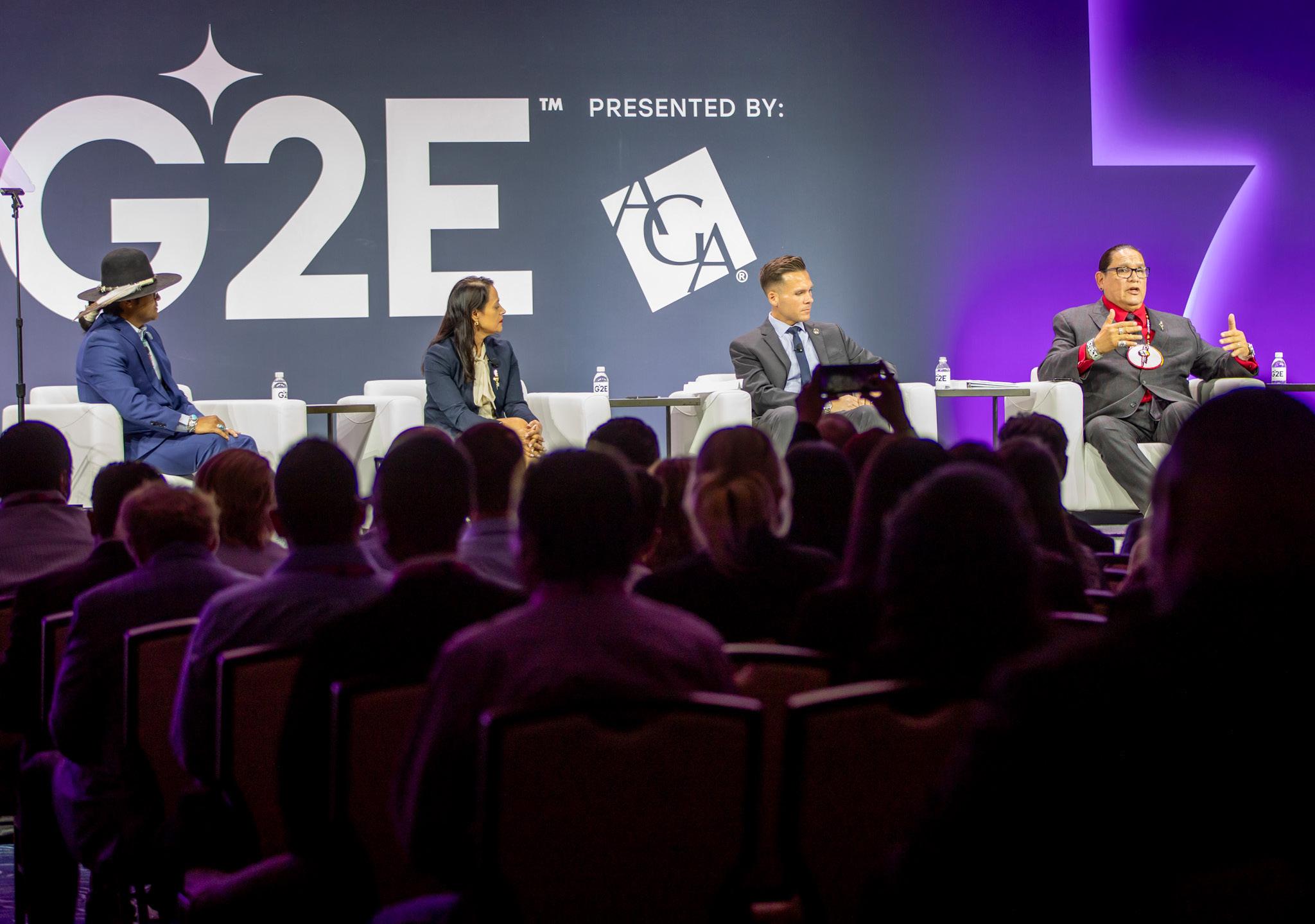
After 25 years, Global Gaming Expo still remains a premier industry showcase. By Peter White
Formed a quarter-century ago by then-American Gaming Association (AGA)
President Frank Fahrenkopf, the Global Gaming Expo –or G2E, as it is fondly known — quickly became the number-one trade show in the casino industry.
As thousands of industry professionals prepare to descend upon Las Vegas for the 25th anniversary show, Sports Betting Operator
Publisher Peter White sat down with the AGA’s Korbi Carrison for an extensive preview. Their conversation has been edited for length.
What are some of the major new features or innovations that attendees can expect at this year’s show?
This year’s G2E takes place October 6–9 at The Venetian Expo, celebrating its 25th anniversary.
Key highlights this year begin with the first-ever G2E Dealer Championship, a high-stakes
competition celebrating the skill and professionalism of U.S. casino dealers. To further foster connections, we’re introducing a dedicated Networking Lounge alongside the new G2E Meeting Zone. There, a mobile app will help attendees seamlessly connect and schedule meetings based on their business needs. Rounding out the experience, the debut of our state-ofthe-art Media Zone recording studio will provide a dynamic space for onsite interviews and content creation right from the show floor.
G2E is known for adapting with the times. How is this year’s edition reflecting the latest trends in landbased and online gaming — especially around technology, regulation, and consumer behavior?
Technology trends like AI-driven analytics, cashless payment systems and compliance tools are well represented, reflecting operators’ needs to deliver seamless, secure
and personalized player experiences. Consumer behavior is shifting rapidly and our education sessions and exhibits address everything from expanding gaming markets to new player demographics and expectations around responsible gaming.
How is G2E 2025 enhancing the attendee experience on the show floor – from layout changes to interactive elements or networking opportunities?
We’ve reimagined the show floor to better serve our audience and organized all G2E experiences into one convenient location called, The Strip. It will feature the Meeting Zone, the Networking Lounge and an exciting activation celebrating 25 years of G2E. This year, we’ll be bringing back Colleqt, the solution that allows attendees to simply scan a QR code located at each exhibitor’s booth for immediate access to comprehensive information about each exhibitor.
For those attending from international markets, how does G2E ensure the event remains globally relevant while still focusing on the North American gaming landscape?
Strategically positioned in the industry calendar, G2E provides the highest visibility for global product launches, making it the place where the future of gaming is unveiled. While many events around the world provide valuable perspective on specific sectors, G2E stands in the top tier, offering the most comprehensive showcase of the legal and regulated gaming market across land-based, online, sports betting, and supporting technologies. The event strikes a balance delivering deep dives into North American trends while embracing the global reach and diversity of the gaming industry.
Korbi Karrison, Event Director, AGA

Can you tell us more about the types of technology and product innovations that will be showcased this year? Any new categories or verticals being given more visibility? We’re seeing a wide range of exciting new technologies and products, including the latest sports betting platforms, online-gaming tools, and cashless-payment systems that make gaming easier and more secure. Emerging verticals like fintech integration will have expanded visibility this year, showcasing how they connect with traditional gaming, along with innovations in player tracking, cybersecurity and hospitality technology.
Overall, G2E is reflecting how the gaming experience is becoming a more seamless, secure and engaging experience for all.

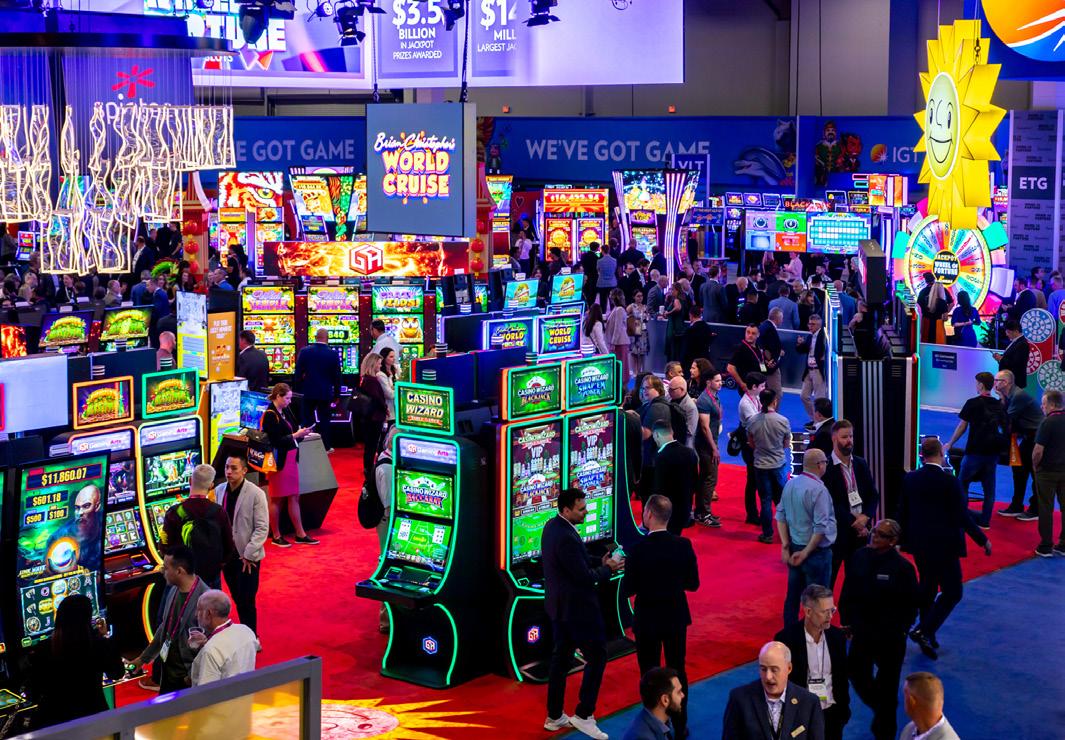
Why should manufacturers and suppliers make exhibiting at G2E a top priority this year? What specific ROI or engagement opportunities can they expect from the show?
G2E is the place for manufacturers and suppliers to meet important buyers and show off their products. It offers unmatched access to key decision makers across every sector of the gaming industry, supported by comprehensive planning tools to maximize ROI and ensure exhibitors achieve their professional goals.
With anniversary celebrations fueling record levels of brand engagement, G2E is the ideal launchpad for new products and global-market entry,
all within the context of the only event solely focused on the legal and regulated gaming industry worldwide. This unique positioning makes exhibiting at G2E not just a smart opportunity, but an essential investment.
How does G2E continue to stand out as the event where business truly gets done?
Over the past 25 years, it has become the global hub where ideas become deals and trends are set. Unlike other events, G2E attracts a broad crosssection of the gaming ecosystem, from operators and regulators to technology innovators and hospitality experts, ensuring comprehensive industry representations.
The event’s home in Las Vegas further elevates the experience. As the gaming and entertainment capital of the world, Las Vegas is where industry-defining trends are born and where the gaming community comes together or observe, experience and learn. It makes it the event where connections turn into contracts and the future of gaming takes shape.
Sustainability and responsible gaming are increasingly central to the industry. How is G2E weaving these themes into this year’s programming and exhibitor presence?
These are central to G2E’s mission and, this year, we’re integrating these themes more deeply than ever. In partnership with the International Center for Responsible Gaming (ICRG), G2E is embedding responsible gaming across our programming, from educational sessions and exhibitor showcases to networking events.
Sustainability topics continue to increase as we progress, with sessions on eco-friendly casino operations and manufacturing, along with numerous exhibitors highlighting green initiatives.
The gaming landscape is shifting rapidly – with convergence between land-based, online, fintech and hospitality. How is G2E 2025 bringing all these threads together? Through our comprehensive educational programs and strategic networking opportunities, G2E facilitates meaningful dialogue and collaboration across these sectors.
Our event fosters integrated approaches that address the evolving demands of players and the broader market by bringing together diverse stakeholders. Attendees can explore integrated loyalty programs, AI-powered game design and cross-platform gaming experiences innovations all under one roof, accelerating innovation, and giving our attendees a comprehensive view of where the industry is heading.
What kind of support or tools does RX provide to first-time exhibitors or smaller companies looking to make a big impact at the show?
We understand that navigating G2E can be overwhelming for newcomers, so RX provides lots of resources for our new exhibitors to be successful. Each exhibitor has a dedicated Customer Success Coordinator who they can rely on for information on everything from registration to ordering booth furnishings. We’ve also launched our interactive Booth Planning Tool, a quick quiz that exhibitors can take. It then puts together a guide to help them through the booth setup and ordering process for G2E. The Booth Planning Tool is a great and easy way for firsttime exhibitors to understand the scope of what G2E is.
Are there any new pavilions, themed zones or demo areas that have been introduced to make the show more dynamic this year?
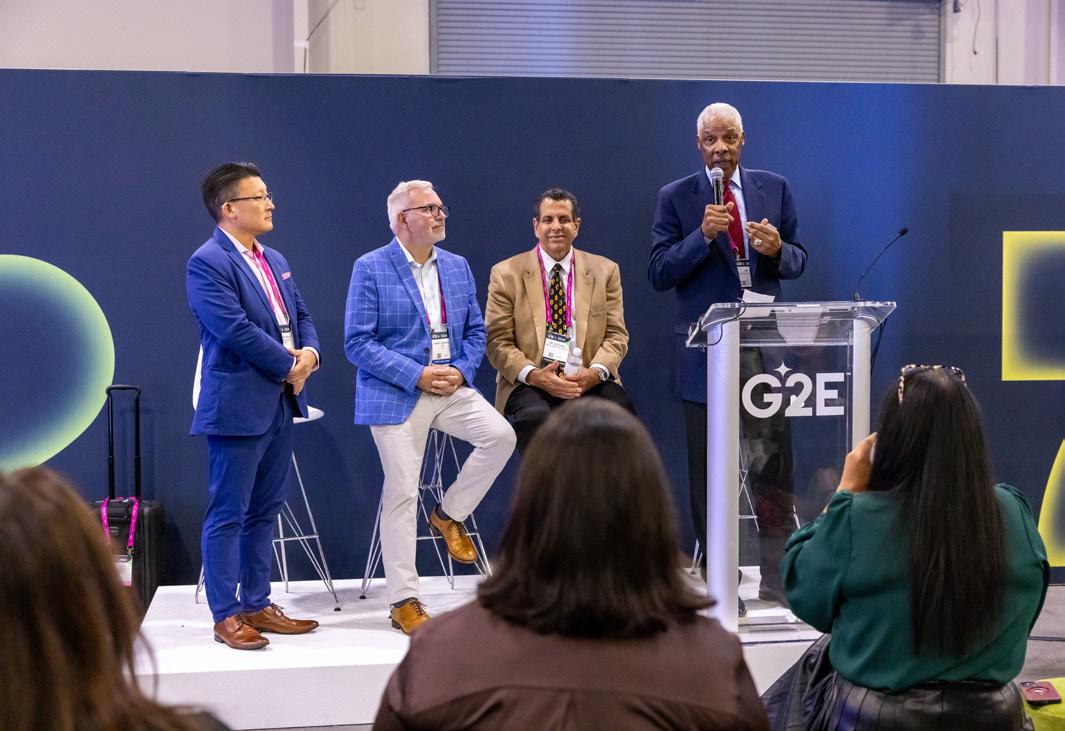

This year, G2E will be launching The Strip. It will be in Hall D and will feature G2E-focused activations. At its center is the first-ever G2E Dealer Championship, spotlighting the skill and professionalism of casino dealers on a competitive stage.
As someone deeply embedded in the event’s strategic direction, what excites you most about G2E 2025? Personally, the energy around this milestone year is unlike anything I’ve experienced before. There’s so much excitement across the industry and with the new features we’ve never been more thrilled.




The International Betting Integrity Association (IBIA) has released its second-quarter 2025 Integrity Report, revealing a total of 69 suspicious betting alerts across 10 sports and 28 countries. The data, collected from IBIA’s Global Monitoring & Alert Network, underscores potential threats and the evolution of suspicious betting patterns in sports-betting integrity worldwide.
The second quarter of 2025 saw an eight percent rise in reported alerts compared to Q1 (64 alerts), and a 21 percent increase over the comparable period in 2024 (57 alerts). Europe accounted for the largest share of cases, with 21 alerts representing a 40 percent increase from the previous quarter. However, longer-term data
suggests a downward trend in alerts on European sporting events.
Three sports, football, tennis and basketball, continued to dominate, generating 74 percent of all alerts in Q2. Football alone represented 39 percent of cases, followed by tennis (20.5 percent) and basketball (14.5 percent).
Alerts were evenly distributed across continents, with Europe and South America each accounting for 17 percent of cases, followed by Africa, Asia and North America at 14 percent each. Esports alerts were categorized as “global,” due to the international nature attached to those events.
IBIA’s membership includes 80-plus


companies and over 140 betting brands, collectively generating an annual betting turnover of over $300 billion. This represents 50 percent of all regulated commercial online betting activity worldwide. IBIA’s network offers unparalleled insight into suspicious betting behavior and the manipulation of sporting events.
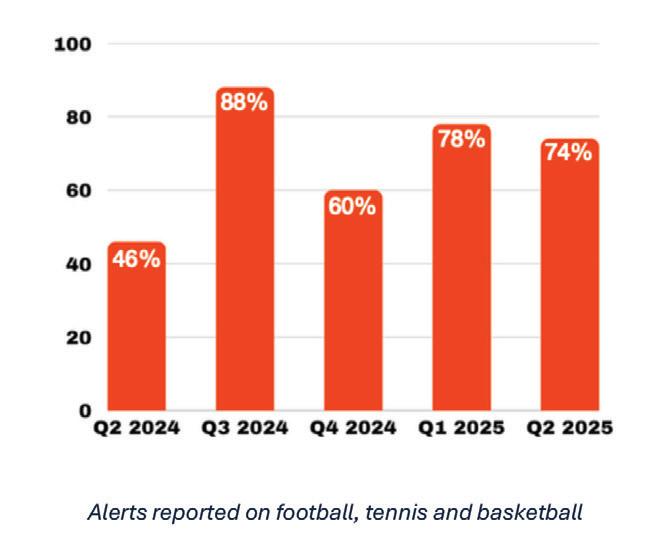
With the data showing both regional spikes and emerging threats, Q2’s report reaffirms that sports-betting integrity remains a dynamic, global challenge – one requiring vigilance, collaboration and decisive action from regulators, operators, and sports bodies alike.









